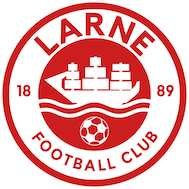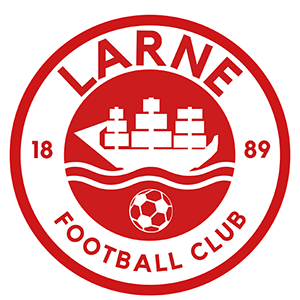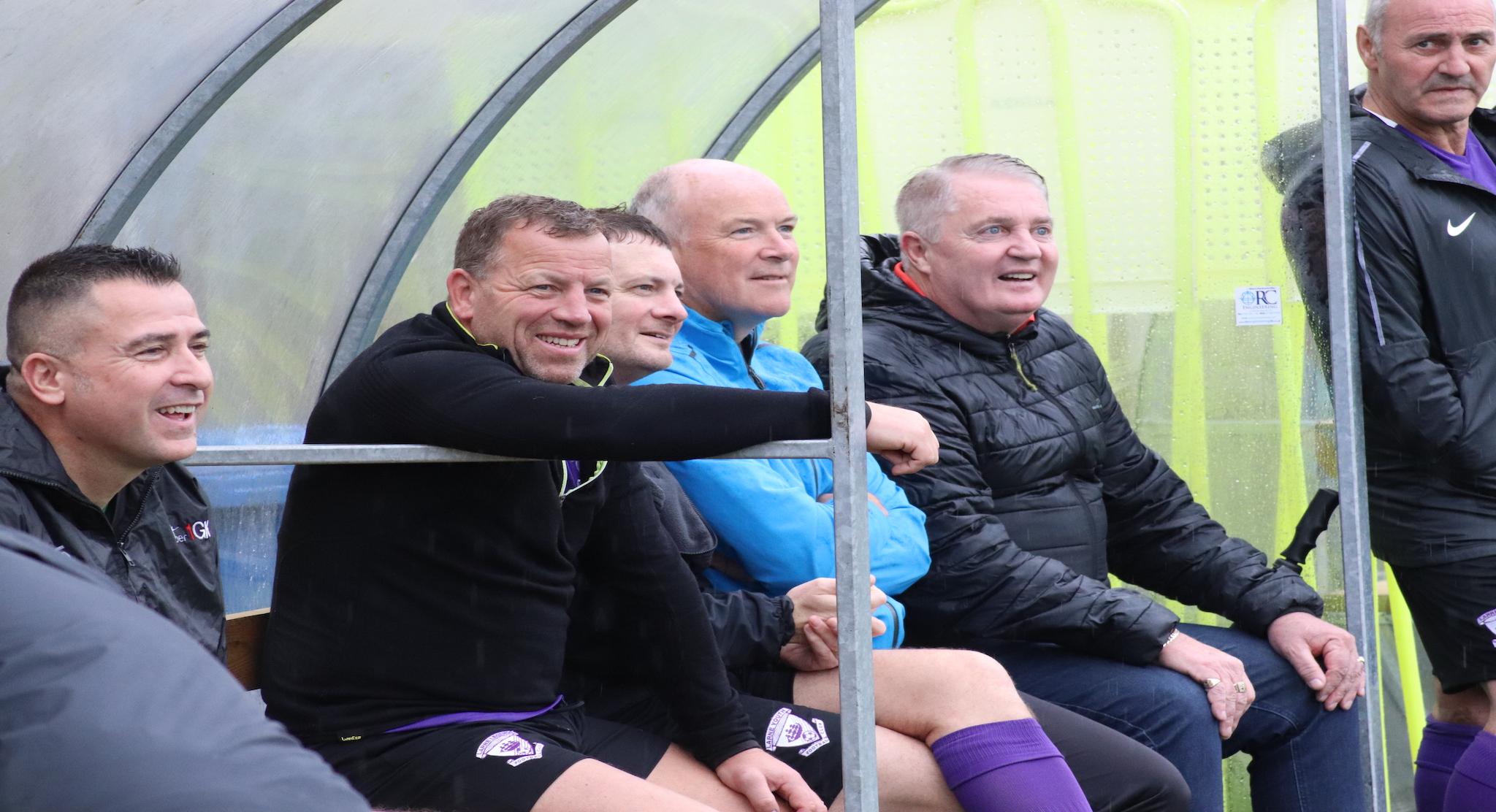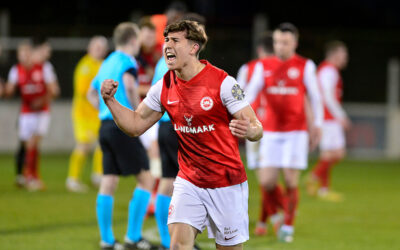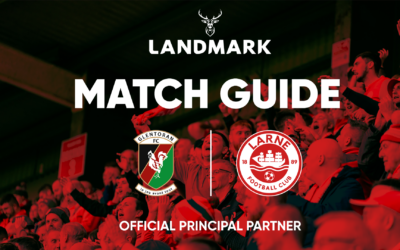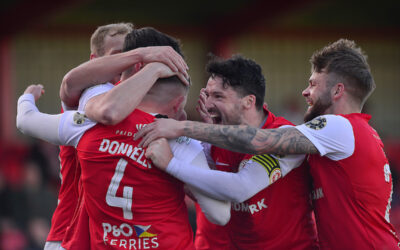It is too difficult to compare football across different eras, they say. When asked if this player from the 70’s was better than that player from the 90’s, most would agree that you can’t give a definitive answer. Maradona better that Messi, who could say with any certainty? The opposition was different, the tempo of the game was different, the pitches they played weren’t the same.
Bring it to a local level and the same answers are likely be given about the best Larne player over the last 130 years – plenty of choices, but impossible to say. What about the club’s greatest ever manager, though?
For many match-going supporters, that one is probably an easier debate to settle. You won’t find too many disagreeing with the suggestion of Paul Malone, who was in the Inver hotseat from 1984 to 1991.
Malone, brother of fellow Irish League manager, Colin, started off his playing days at Glevavon, at just 15-years-of-age. From there, he caught the eye of Linfield and a spell at Windsor Park followed. He was to return to the Glenavon and also turn out for Ballymena United. However, it was when he decided that he wanted to move into management that Malone’s rich association with Larne began.
It was while coming towards the end of his playing days with the Braidmen, that Malone began to think seriously about the coaching side of the game. It was in the wake of Alan Campbell’s infamously short spell in charge as manager at Inver Park in 1984, that Malone’s crack at management was to come.
“Alan is a big reason why I got the job,” Malone recalls.
“He was only there for a few games I think, and went to Ballymena. He knew I wanted to get into management and recommended me as his successor. The club took a chance on me and appointed me as player/manager.”
Malone admits the rigours of combining the two roles, playing and managing, in the early days was a difficult task.
“I did it for a couple of years, but it was tough,” he said.
“When you’re training you’re trying to keep up with these young players. I had Gary Erwin there assisting me and that was a big help. I think as time goes on you realise yourself that you’re losing a bit of sharpness and fitness and then you know it’s time to hang up the boots.
That happened for me and I felt I was better to concentrate on one over the other.”
For Malone that turned out to be an inspired decision, as he continued to build a side which competed at the top end of the Irish League towards the second half of the 80’s. He was able to blend together top players who were already at the club, as well as those he had experience of working with at the Ballymena Showgrounds, as he explained.
“I was lucky, because when I was at Ballymena there was Tommy Houston and Trevor McMullan, two top players,” he said.
“At that stage I played alongside them, so I knew they were quality players, they had all the attributes you need to be a full-back, especially in those days. When you’re able to add that to players Paul Carland and Eddie Spiers, two lads who never seemed to miss a ball you have a top back four in place.
“Over time we were able to add to that players who made us a really good side. The likes of Bryan McLaughlin, Michael Guy, Tommy McDonald, Ian Bustard and the rest. You build over time and thankfully that’s what happened for us.”
Anyone who saw Malone’s teams in action will know they certainly had the ability to play.
Malone himself believes that was built on being a fit, hard-working side and the ability to man-manage players, which he learned to developed over time.
“To be in management you have to know your players and you have to know them as people,” he said.
“You get to know the players who need an arm around them and the others who need a kick up the backside. Different people react to different things and you learn that as time goes on.
“Fitness was another big emphasis for us. When you maybe don’t have the same ability as the person you’ve coming up against but you’re fit, it goes a long way. We made sure we were fit and the players themselves deserve a lot of credit for just how hard they worked to make it that way.
Malone’s seven years at the club was marked by a rise up the league table, finishing fourth and just missing out on European football at one stage. It was an era when Larne, who had so long been known as Intermediate kingpins, mixed it with the top senior clubs in the country.
There was also the much talked about Irish Cup finals of 1987 and 1989, losing by a single goal to Glentoran and Ballymena United.
The crowning glory of the era came in 1987, when captain Paul Carland lifted Larne’s second Ulster Cup following a 2-1 win over Coleraine, in 1987.
“It was a fantastic experience to be in those Irish Cup finals, there are so many clubs who never made it that far at all,” Malone said.
“Of course it’s a big disappointment not to win either of them, but the support we got around that time was superb.
“I was delighted we were able to win the Ulster Cup and bring a trophy back to Inver, because it was something to show for all our efforts. When you win a trophy it’s right up there and the people of Larne have remembered it, to this day.”
Malone left the club in 1991 and would go on to manage North Down rivals Ards and Bangor. He returned to the club at the turn of the millennium for one more spell as manager, but wasn’t quite able to recreate the magic of his first period in charge.
“I was into the business at that stage and I probably just didn’t have the time that I would like to have,” he recalled.
“Obviously, it was a big emotional pull to come back after the first spell at the club. It certainly wasn’t all bad though, we were able to unearth the likes of ‘Scotty’ Douglas, who is still playing to this day.”
Fast forward to the modern day and Malone was back at Inver Park for the Larne Legends game on Sunday, in memory of one of his former players, Davy Smyth.
“It was great to be around a lot of those players again, and I really enjoyed it,” he added.
“To see the facilities they have at Inver Park now is superb – it’s night and day from what we had in our day. Kenny Bruce is doing fantastically well in what he is planning at the club and what has been achieved so far.
“It’s a big plus being back in the Premiership and at the end of the day Larne is a football town. I saw that in my time at the club and it has been proven again with all that’s happening.”
